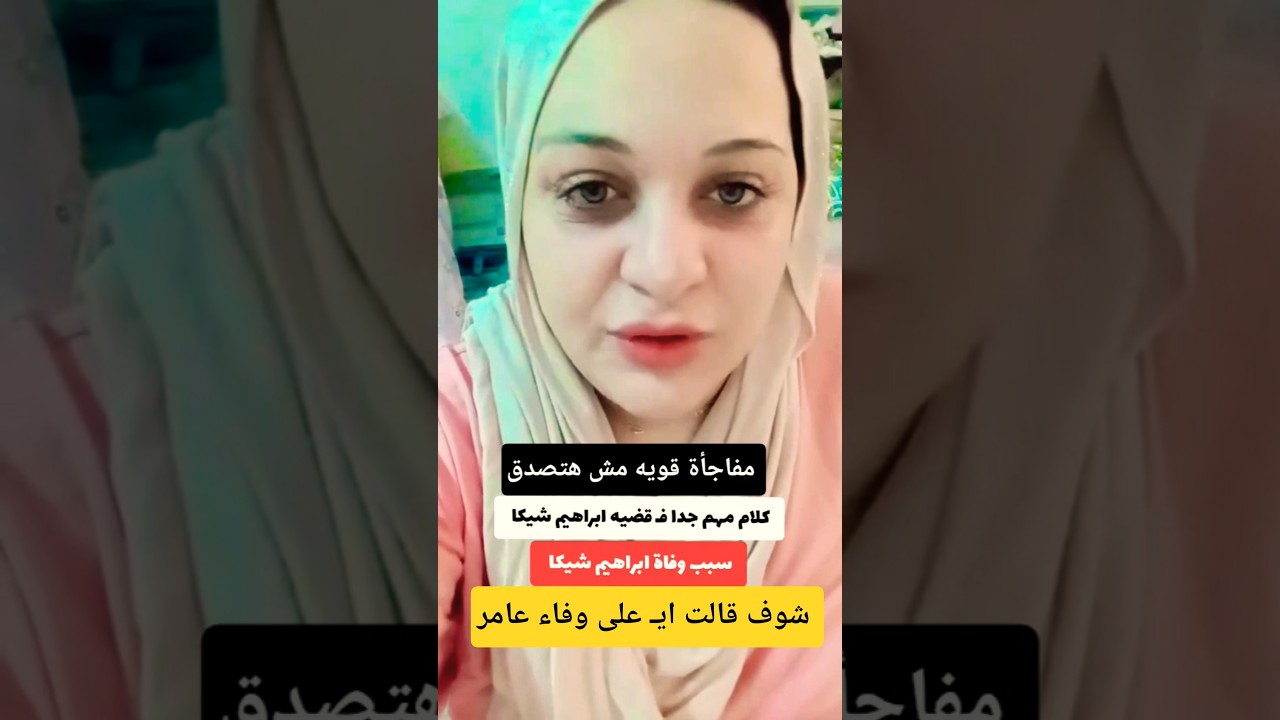In recent weeks, Egyptian social media has been engulfed in a high-profile controversy involving acclaimed Egyptian actress Wafaa Amer and an emerging TikTok personality named Marwa Yousry Abdelhamid.
The dispute has escalated with surprising claims touching on sensitive topics such as human organ trafficking, celebrity influence, and alleged familial links to former President Hosni Mubarak.
The Allegations That Sparked a Firestorm
The controversy began when Marwa Yousry, an Egyptian TikToker who gained a modest following online, posted in July 2025 a series of videos making explosive allegations against Egyptian actress Wafaa Amer. In her videos, Yousry claimed that Amer had been involved in a plot to exploit the young football player, Ibrahim Shika, who had recently died in April after a battle with cancer.
These assertions have not been verified by any credible source, nor have they been supported by documentation or recognition from any parties involved. Nevertheless, the accusations added a layer of sensationalism to her online persona.
Yousry also claimed that Shika’s illness was staged as a front for organ harvesting, and that Amer had coordinated this scheme in collusion with Shika’s wife, Heba El-Turki. According to Yousry, the goal was to coerce Shika into “donating” parts of his liver and kidney, which were then allegedly sold on the black market.
These claims gained rapid traction on Egyptian social media, particularly due to Amer’s celebrity status and the gravity of the accusation. The controversy not only fueled discussion about TikTok’s role in spreading unverified information but also added pressure on authorities to respond.
Wafaa Amer’s Response
In response to the allegations, Wafaa Amer publicly and categorically denied all accusations. She stated that her involvement with Ibrahim Shika and his wife was limited to humanitarian support, including organizing fundraising efforts to cover his medical treatment.
Amer also appeared in video footage at Shika’s funeral, expressing emotional support for the family and affirming that all donations were transferred directly to the hospital, not to Heba or any personal accounts.
Yet, in the face of mounting public attention, Amer took legal action. She accused Yousry of fabricating stories and spreading false information intended to damage her career and reputation.
The Egyptian Actors’ Syndicate issued a statement supporting Amer, forming a legal committee to ensure she receives fair representation and to push back against the spread of unverified claims against artists.
Legal Developments
On 15 July , Egyptian police arrested Marwa Yousry in Alexandria following the formal complaint by Wafaa Amer. Reports indicated that during the arrest, authorities found two mobile devices, one of which contained a digital wallet allegedly receiving funds from abroad, raising questions about whether she was incentivized to spread misinformation or defame public figures.
Soon after her arrest, Marwa reportedly confessed during interrogation that she had fabricated the entire story surrounding Wafaa Amer and the organ trafficking plot. According to police reports, she admitted the motive was to gain popularity and views on TikTok, a form of content-driven sensationalism common on social media platforms.
Social media users were split into two, with some never believing her and others still backing her allegations up.
The Amer–Yousry case has shown how quickly unverified claims can spread on TikTok and influence public debate in Egypt. Although the allegations were later withdrawn, the incident raised wider concerns about misinformation, online accountability, and the role of regulation.
It also highlighted the ongoing challenge of balancing free expression with the need to limit harmful content on digital platforms.
On 2 August, the head of the National Telecommunications Regulatory Authority (NTRA) warned TikTok to regulate its content to adhere to ‘Egyptian social and moral standards’ with a three-month deadline. NTRA continues examining legal frameworks to regulate digital platforms, with the goal of balancing the protection of free speech and maintaining public morality.







Comments (0)